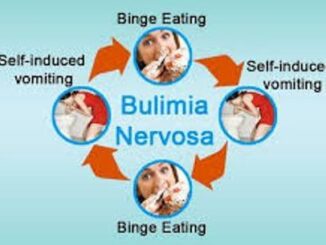
Anorexia Nervosa:
It is a complex mental health disorder, goes beyond dieting or a desire to be thin. It involves a distorted body image, intense fear of gaining weight, and severe restriction of food intake, often leading to dangerous health consequences. Understanding anorexia nervosa is crucial for recognizing its signs, supporting those affected, and seeking appropriate treatment.
What is Anorexia Nervosa?
Anorexia nervosa is an eating disorder characterized by obsessive thoughts about food, weight, and body shape. Individuals with anorexia may severely limit their food intake, engage in excessive exercise, or misuse diet pills or laxatives to lose weight. Despite being underweight, they may perceive themselves as overweight, leading to persistent behaviors to control their weight.
Signs and Symptoms:
Recognizing the signs and symptoms of anorexia nervosa is essential for early intervention. Common signs include dramatic weight loss, obsession with food and calories, avoidance of social gatherings involving food, excessive exercise, denial of hunger, and preoccupation with body image. Physical symptoms may include fatigue, dizziness, brittle nails, hair loss, and irregular menstruation in females.
Risk Factors:
Anorexia nervosa can affect anyone, but certain factors may increase the risk. These include genetics, family history of eating disorders, psychological factors such as perfectionism or low self-esteem, societal pressures to be thin, traumatic life events, and participation in activities that emphasize thinness, such as dance or modeling.
Treatment and Recovery:
Treating anorexia nervosa requires a multidisciplinary approach involving medical, nutritional, and psychological interventions. Treatment may include nutritional counseling, psychotherapy (such as cognitive-behavioral therapy), medication for co-occurring conditions like depression or anxiety, and support groups. In severe cases, hospitalization may be necessary to address medical complications and provide intensive care.
Supporting Recovery:
Support from family, friends, and healthcare professionals is crucial for those recovering from anorexia nervosa. It’s essential to create a supportive environment free from judgment, promote positive body image, and encourage healthy behaviors rather than focusing solely on weight or appearance.
Prevention and Education:
Preventing anorexia nervosa involves promoting body positivity, fostering healthy relationships with food and exercise, and challenging societal norms that equate thinness with beauty or success. Education about eating disorders, early detection, and intervention are essential in schools, communities, and healthcare settings.
Conclusion:
Anorexia nervosa is a serious and potentially life-threatening condition that requires compassionate and comprehensive care. By increasing awareness, recognizing the signs, and providing timely intervention and support, we can help individuals affected by anorexia nervosa on their journey to recovery and healing. It’s essential to prioritize mental and physical well-being and promote acceptance and understanding of diverse body shapes and sizes. For more details, you can contact to Yuvaan Naturopathy and Ayurved Center in Indirapuram, Ghaziabad.




Be the first to comment